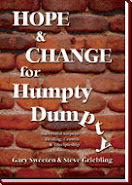'A mighty warrior for Jesus'
BY REBECCA GOODMAN
RGOODMAN@ENQUIRER.COMMOUNT WASHINGTON - In 1994, the Rev. F. Murray Hastings quit the priesthood to form a new church because he felt the Episcopal denomination was no longer true to its calling. At the time, he was rector of the Church of the Advent in Walnut Hills. Most of the congregation followed him and became members of the nondenominational Fellowship of Jesus Christ. Rev. Hastings served as pastor until 2005.
"He was a mighty warrior for Jesus," said his wife, Alixe.
Rev. Hastings died Monday at Mercy Anderson Hospital of undetermined causes. The Mount Washington resident was 78.
"He always stood for truth, justice and equality for all," said his daughter Joyce Pasley, of College Hill. "He spoke out on many occasions in defense of these principles."
He was a local leader in the ecumenical movement, according to Gary Sweeten of Symmes Township. "He's been one of the most influential ministers in Cincinnati in the area of taking the church out of the four walls of the church and into people's lives," he said.
Back in the 1960s, Rev. Hastings invited African-American pastors and their congregations to the Church of the Advent, which was an upper-middle class, mostly white church.
"He was very much a change agent," Sweeten said. "Anything that went on in Cincinnati from the point of the ecumenical movement, Murray was on the forefront. From Billy Graham's work here to every large movement, he was on the steering committee. He was one of the wise people and networkers that brought people together."
Rev. Hastings was rector of St. Matthew's Episcopal Church in Bond Hill from 1955 until 1960, when he went to Church of the Advent.
After leaving the Episcopal ministry, he created a ministry at Fellowship of Jesus Christ that was a blend of evangelical preaching; charismatic prayer that included speaking in tongues; and social outreach for the mentally ill, hungry, homeless and pregnant teenagers. He championed holistic health, healing and pastoral care, Sweeten said.
"He made everyone around him feel important and loved," said his daughter.
His wife said, "He was a man before his time - a leader for racial reconciliation. He was resolutely firm in his faith."
The Boston native was a graduate of Phillips Academy and Trinity College. He was ordained at St. Matthew's Church in 1955 after receiving a master's of divinity from Episcopal Theological School in Cambridge, Mass.
He enjoyed sailing, golf and classical music.
Other survivors include daughters, Cinny Roy of Sycamore Township, Kit Campbell of Broadview Heights, Ohio, and Jennifer Williamson of West Chester Township; and 10 grandchildren.
The funeral was 11 a.m. Friday at Norman Chapel at Spring Grove Cemetery.
Memorials: CityCure, 1947 Auburn Ave., Cincinnati, OH 45219 or Eve Center, P.O. Box 36483, Cincinnati, OH 45236.--
>http://news.enquirer.com/apps/pbcs.dll/article?AID=/20080425/NEWS0104/804250411/1060&template=printpicart-->








